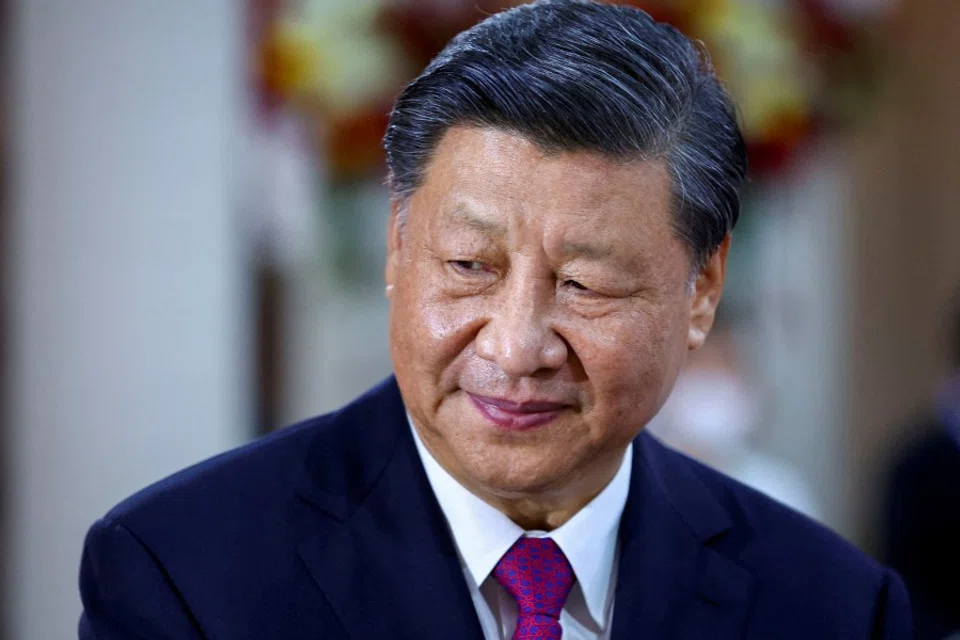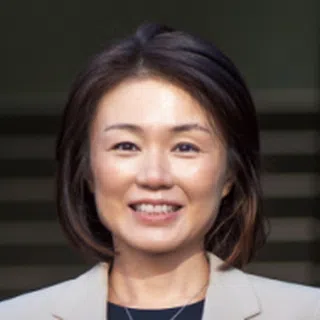Connecting past, present and future: Xi Jinping's logic of governance and legitimacy in his third term
Japanese academic Naoko Eto scrutinises changes to the Chinese Communist Party's constitution and Chinese President Xi Jinping's report to the 20th Party Congress for signs of Xi's likely governing tenets in his third term.

The world's attention was recently focused on the 20th Party Congress of the Chinese Communist Party (CCP) concluding on 22 October, at which the party announced its policies and appointments to the CCP Central Committee.
The following day, on the 23rd, with the new leadership inaugurated at the 1st plenum of the 20th CCP Central Committee, General Secretary Xi Jinping's road to long-term governance was paved as he was reappointed for a third term. This marked the end of institutionalised power transfer in the People's Republic of China, which had been emphasised as a lesson learnt from the Mao Zedong era that had brought major disruptions and setbacks to the country.
The four new members of the 20th Politburo Standing Committee (PSC) are all close associates of Xi, while a majority of the 24 top officials who make up the members of the Politburo of the CCP also have personal ties to Xi, belonging to the so-called "Xi faction".
Moreover, with the resignation of political leaders from Xi's generation such as Li Keqiang and Wang Yang, there is no longer anyone in the new leadership who can disagree with Xi. Overall, it can be said that Xi's rule is approaching a de facto personal dictatorship.
Nuances in constitution amendments
Meanwhile, it should be noted that the slogan "Two Establishes", which makes Xi's authority absolute and was repeatedly mentioned at the Party Congress, was not included in the amendment to the CCP constitution adopted on the 22nd.
This is despite the fact that a congressional resolution adopted on the same day emphasised that "the entire party must deeply understand the decisive significance" of the Two Establishes. Instead, the constitution came to include the slogan "Two Upholds", meaning loyalty to Xi and the Central Committee.
... the inclusion of only the Two Upholds in the constitution means a retention of the rhetoric of a "collective leadership system by the Central Committee".

The main difference between the Two Establishes and the Two Upholds is whether the Central Committee is explicitly stated to be the governing entity. In other words, the inclusion of only the Two Upholds in the constitution means a retention of the rhetoric of a "collective leadership system by the Central Committee".
Just like the non-reinstatement of the position of chairman of the Central Committee of the CCP (party chairman), which was talked about before the Party Congress, and the decision not to use language that would boost the authority of Xi as an individual, such as "Xi Jinping Thought" and "people's leader" in the constitution, these serve to avoid identifying Xi as the absolute ruler.
... individual authority was strengthened within a political structure that retains the form of a collective leadership system.
Xi at the centre
However, this does not necessarily mean that Xi's authority has declined. On the 27th, after the Party Congress, all seven members of the PSC visited Yan'an City, Shaanxi Province, which is considered a "holy land" of the Chinese revolution, in a "performance" that not only signified a return to the original intention of the "Yan'an Spirit" in overcoming a period of hardship, but also emphasised the unity of the PSC members.
The authority of Xi, who has always been at the centre, is thought to have been boosted indirectly by placing greater importance on the unified Central Committee. In other words, individual authority was strengthened within a political structure that retains the form of a collective leadership system.
This formal continuation of collective leadership may have been a way to eliminate the political leaders of the non-Xi faction. Xi, who reported to the Party Congress at the opening ceremony on the 16th, said that the five years since the 19th National Congress have been "truly momentous and extraordinary", and that there had been "external attempts to blackmail, contain, blockade, and exert maximum pressure on China".
Expressing a sense of crisis about national security in a severe international situation, he called for everyone to "stay closely rallied around the Party Central Committee", which is a clear indicator of a desire for strong leadership and a functional party management team. Xi was likely justifying the appointment of persons close to him under the banner of the party's "solidarity and unity".
Xi is being framed as a political leader who develops Marxism according to the changing times based on Maoism, and can successfully build "China into a modern socialist superpower" by 2049.
Questions of legitimacy
So, where is the legitimacy of the Xi regime to be found? What emerges from the Party Congress discussions is the image of a leader with "red genes" who will complete the building of a socialist country. In the report to the Party Congress, it says that in establishing "the Thought on Socialism with Chinese Characteristics for a New Era", "a new breakthrough in adapting Marxism to the Chinese context and the needs of our times" has been achieved and the party has "endeavoured to use this new theory to arm ourselves [themselves] intellectually".
"Adapting Marxism to the Chinese context" means adapting the theories of socialism to China's national circumstances and traditional culture, a concept proclaimed by the CCP in the 1930s and which later culminated in Maoism. In other words, Xi is being framed as a political leader who develops Marxism according to the changing times based on Maoism, and can successfully build "China into a modern socialist superpower" by 2049.
If Xi's leadership enforces a redistribution of wealth under the socialist slogan of "common prosperity for all", that will probably reduce the cohesive force of the CCP.

This is an attempt to shift the legitimacy of the CCP, which has previously relied on historical perceptions (past achievements) and economic development (present achievements), to the manifestation of socialism (future achievements).
However, it is extremely difficult for the CCP, which has grown to incorporate various vested interests and more than 96 million members, to coordinate interests without incurring any dissatisfaction. If Xi's leadership enforces a redistribution of wealth under the socialist slogan of "common prosperity for all", that will probably reduce the cohesive force of the CCP.
If the "correctness" of socialist ideology indeed permeates mainly among young people, the values of Chinese society will fundamentally change in the medium to long term...
Guiding public opinion based on socialist ideology has been regarded as the key to maintaining the cohesiveness of the CCP. In his report to the Party Congress, Xi said that "a nation will prosper only when its young people thrive" and built on that to assert that "we will equip young people with the Party's theories, inspire them with the Party's original aspiration and founding mission, and become their confidants, advocates, and guides for the future".
If the "correctness" of socialist ideology indeed permeates mainly among young people, the values of Chinese society will fundamentally change in the medium to long term, which will also mean that China's very way of being as a nation is also changing.
Related: [Party and the man] Factions and fence-sitters in Xi Jinping's China | How Xi Jinping consolidated power over the past decade | [Party and the man] Xi Jinping faces biggest challenges in decades | [Party and the man] A third term is just the beginning: Xi Jinping's main challenges | Xi Jinping's position as 'the people's leader' firm ahead of 20th Party Congress



![[Photos] Fact versus fiction: The portrayal of WWII anti-Japanese martyrs in Taiwan](https://cassette.sphdigital.com.sg/image/thinkchina/3494f8bd481870f7c65b881fd21a3fd733f573f23232376e39c532a2c7593cbc)

